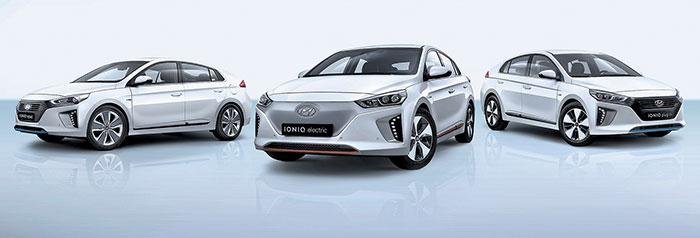says the technology is evolving so fast that it must roll out new electric vehicles on a two-year cadence to boost the current 110-mile range to around 250 miles by 2020.
The breakneck product cycle is being driven not just by upcoming competition from the Tesla Model 3 and Chevrolet Bolt, but from a blitz of upstart Chinese rivals whose EVs will be sold mainly in China.
Ahn Byung-ki, director of eco-vehicle development at Hyundai Motor Group, said the rate of technological improvement in electrified vehicles has been slow over the past six years, but that innovation will quicken in the face of pressure and demand from China.
"Electrical vehicles are changing real fast. From a conventional perspective, two years or maybe a year-and-a-half is not really a long time," Ahn said in an interview last week at the carmaker's Namyang r&d center here south of Seoul. "But in the EV business, it is a pretty long time. We have to be ready for the new generation every two years."
250-mile range?
Hyundai introduces its first EV this year, an all-electric version of the Ioniq small car, which also will be offered in hybrid and plug-in hybrid versions. The Ioniq Electric is expected to deliver a fully charged range of 110 miles in the United States, where it will go on sale in November. Price has not been announced.
But before it even lands, Hyundai is planning a new EV with a 200-mile range for 2018 and another with range approaching 250 miles by around 2020.
It is all part of the Hyundai Motor Group's bold blitz to introduce 28 new eco-vehicles by 2020 across the Hyundai, Genesis and Kia brands. The rollout will cover 10 traditional hybrids, eight plug-in hybrids, eight EVs and two fuel cell vehicles.
Hyundai sees a rapid ramp-up in electrified vehicle performance over that time, Ahn said. That will require continual improvements to keep the cars fresh and competitive.
"For the past five or six years, nothing has changed very dramatically," he said. "But after Chinese companies have come into the business, they have really led the change."
Not a premium player
Foreign carmakers selling EVs in China must use electrical drivetrain components developed with a local Chinese supplier, which has made Chinese suppliers more technologically savvy in key items such as motors and electrical control units, he said.
"They have a lot of EV companies, almost 200," Ahn said. "They are very serious."
Hyundai is not worried about its newer EVs cannibalizing sales of the Ioniq EVs, partly because they will likely be in different price ranges. "We're going to put more batteries in it, so the price is going to be higher than the Ioniq's," Ahn said.
Despite having longer range and bigger stickers, the next-generation EVs aren't envisioned as challengers to premium offerings from companies such as Tesla, Ahn said.
But he added that the company isn't ruling out a Tesla-fighter "if needed" and that it is also considering an EV entry for the newly christened Genesis luxury brand.
Looking ahead, a 250-mile range will be Hyundai's EV target by around 2020.
"That's reasonable," he said. Not so tenable: Ranges of 300 to 400 miles in the foreseeable future. "With the EV, I'm not so certain that is possible, or reasonable."

